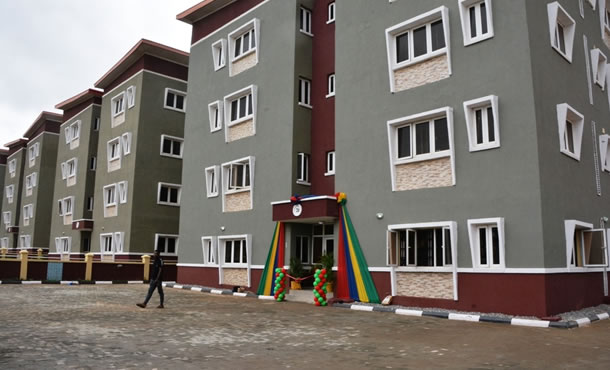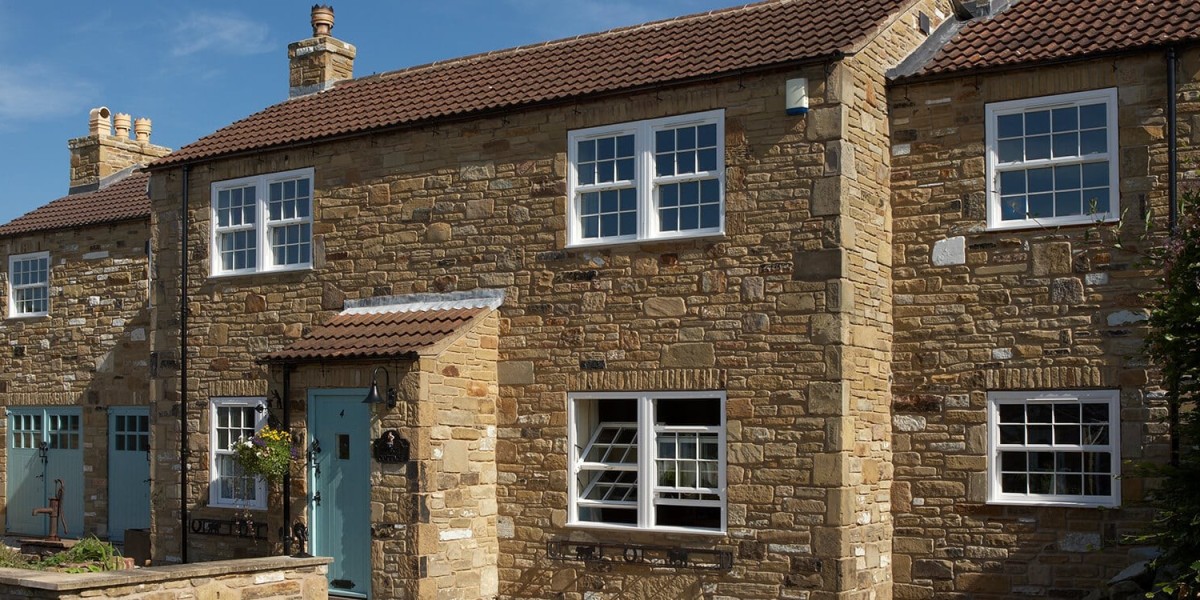How is renting various from home ownership?
What are my obligations as a tenant?
What can I do to keep my rental home a healthy home?
What if I have an unhealthy condition in my rental home?
What are my rights as a tenant?
Fact sheets for occupants and renters throughout COVID-19
What about Residential Or Commercial Property Maintenance Codes?
What is URLTA?
What are the minimum requirements for rental housing?
Can I make a protest?
What if I reside in federal government assisted housing?
Does the USDA help with tenants in rural areas?
Where can I find out more about healthy housing policy?
Additional resources

* * * Our Healthy Homes personnel are not medical professionals or lawyers. The info on our Healthy Homes Website does not supply medical or legal advice. This information is not an alternative to visiting your doctor or for speaking with an attorney about your particular scenario. * * *

3 Actions a Concerned Renter Should Do:
1. Put everything in writing. Take photographs and videos. Save e-mails, texts, letters, and voicemails. Write a calendar of events.
2. Do not stop paying rent. It would likely be versus the lease or the law. Keep your rent invoices as evidence you paid.
3. Read your lease. Whatever is composed in the lease is a legal agreement. Both occupant and landlord have obligations.
It is likely unlawful for a property manager to strike back versus an occupant who submits a grievance, calls Buiding Codes, or takes legal action. Changing locks, shutting off utilities, revealing up typically, or inappropriately raising lease can be retaliation.
How is renting different from own a home?
Renting is various from home ownership in that the tenant should count on someone else to make repair work. The renter may not be able to make modifications to the home without consent. An occupant has both rights and responsibilities. Renting can be an excellent alternative for lots of people to keep a healthy home environment, both inside and outdoors. Whether you rent a house, apartment or condo, duplex, mobile home or cabin you can keep the seven healthy homes principles. Keep in mind that health starts in your home.
What are my obligations as a tenant?
Renters are responsible for cleanliness and security. You may lease with no official contract, or you might have a lease contract. The most typical type of tenant in Tennessee is an occupant who signs a lease contract to pay lease every month throughout the year. Renters may be asked to supply a security deposit. Lease agreements are legally binding agreements. You are accountable for following the terms of your lease. Some lease agreements have addendums such as pet policies, insect control agreements or for reporting water damage. You are accountable for: paying your rent on time, paying any late charges, keeping the location clean and safe, not letting anyone else damage it, not breaking the law, disposing of your garbage, and following your landlord's rules. If you break your lease, then it may become a legal concern.
The Tennessee Department of Commerce and Insurance shared Tips for First-Time Renters as well as Tips on How to Spot Rental and Moving Scammers.

What can I do to keep my rental home a healthy home?
There are eight fundamental principles to keeping a healthy home.
1. Keep it Dry. - Damp homes supply a great environment for termites, roaches, rodents and molds.
2. Keep it Clean. - Clean homes help in reducing bug problems and exposure to pollutants.
3. Keep it Pest-Free. - Exposure to mice and cockroaches may increase asthma attacks. Improper pesticide treatments for pest invasions can get worse health problems, because pesticide residues in homes can present health threats.
4. Keep it Safe. - Most of kids's injuries occur in the home. Falls are the most regular cause of property injuries to children, followed by injuries from objects in the home, burns, and poisonings.
5. Keep it Contaminant-Free. - Avoid exposure to lead, radon, carbon monoxide gas, pesticides, asbestos and environmental tobacco smoke. Bear in mind exposure is frequently greater inside.
6. Keep it Ventilated. - Studies have shown increasing fresh air in a home improves breathing health.
7. Keep it Maintained. - Poorly-maintained homes are at threat of being unhealthy.
8. Keep it Thermally Controlled. - Houses that do not maintain sufficient temperature levels may position the security of homeowners at increased threat from exposure to extreme heat or cold.
If you use these concepts as a guide, you can preserve a safe and healthy home. If you are having an issue maintaining any of these principles, other parts of this website will know and resources to help you.
What if I have an unhealthy condition in my rental home?
If you have an unhealthy condition in your rental home, then it may be your obligation to fix the problem or it might be your property owner's responsibility to make repairs. Read your rental lease arrangement. Abide by any requirements for tidiness or safety. Report any required repairs to the landlord as they develop. Putting your issues in writing is best. This creates a record of your concerns. Repairs to your rental home must be made in a sensible amount of time. The quantity of time might be noted in your lease.
If your property manager has actually not made repairs in a sensible quantity of time, you may need to communicate more straight, such as with extra written complaints or a face-to-face conference. If your proprietor continues to neglect your concerns, you might require to pursue legal action.
Disputes between a landlord and a tenant are civil issues. Most property manager and occupant issues are beyond the authority of the Health Department. These concerns would be ruled on by a civil court judge analyzing the law. There are some programs that support occupants.
What are my rights as an occupant?
According to the Legal Aid Society, as an occupant you deserve to a livable place and to live in harmony. Your rights as an occupant might differ depending upon which county you reside in. The Legal Aid Society has a useful reality sheet to help you understand your rights as a renter. How to get in touch with the Legal Aid Society or the Tennessee Alliance for Legal Services is noted below.
If your rental home needs an emergency situation repair work to keep it healthy, such as a repair of the heat, gas, lights, water, sewage, plumbing or a/c, you need to alert your property owner right now.
If the need for repair work in not an emergency, then 14 days is generally thought about as a sensible quantity of time for the proprietor to make repair work. Hopefully, most repairs will be made rather after a property manager is made mindful. Use your routine method of reporting needs for repair work such as a site, call, text, or workplace check out. Put something into writing to record when you made the landlord knowledgeable about the requirement for repair.
In some counties you can use a few of your rent cash to make these immediate repairs. If the problem was your fault, you might have to assist pay for the repairs.
You can not be dislodged of your rental home. You can not be kicked out without notice. The landlord can not change the locks or turned off your utilities to make you leave. The majority of the time, a property manager needs to go to court before evicting you. If you did something harmful or threatening, the property manager only needs to provide you three (3) days to move out. If you did not pay lease or broke your lease agreement, you may be offered a thirty (30) day see to vacate. If you have legal concerns about housing, you must seek advice from a lawyer or legal services.
The Tennessee Alliance for Legal Serices has a HELP4TN site, chatbot, and telephone to help people who require help with their legal issues. If you do not have your own legal representative, this is a good website to begin.
If you qualify based on earnings or assistance status, the Legal Aid Society might have the ability to assist. Keep in mind, Legal Aid has a customer waiting list and seldom will cases occur quick. Contact the workplace near you for more details.
Legal Aid Society of Middle Tennessee and the Cumberlands - 1-800-238-1443
Offices in Clarksville, Columbia, Cookeville, Gallatin, Murfreesboro, Nashville, Oak Ridge, and Tullahoma
Legal Aid Society of East Tennessee - 1-865-637-0484
Offices in Knoxville, Johnson City, Chattanooga, and Cleveland
West Tennessee Legal Services - 1-800-372-8346
Offices in Jackson, Dyersburg, Huntingdon, and Selmer
Memphis Area Legal Services - 1-888-207-6386
Offices in Memphis and Covington
The Legal Aid Society developed these reality sheets to assist you understand your rights and responsibilities as a renter. Click the left image for counties of 75,000 or more population and the best image for smaller counties.
Anderson, Blount, Bradley, Davidson, Hamilton, Knox, Madison, Maury, Montgomery, Rutherford, Sevier, Shelby, Sullivan, Sumner, Washington, Williamson, or Wilson
Bedford, Benton, Bledsoe, Campbell, Cannon, Carroll, Carter, Cheatham, Chester, Claiborne, Clay, Cocke, Coffee, Crockett, Cumberland, Decatur, DeKalb, Dickson, Dyer, Fayette, Fentress, Franklin, Gibson, Giles, Grainger, Greene, Grundy, Hamblen, Hancock, Hardeman, Hardin, Hawkins, Haywood, Henderson, Henry, Hickman, Houston, Humphreys, Jackson, Jefferson, Johnson, Lake, Lauderdale, Lawrence, Lewis, Lincoln, Loudon, McMinn, McNairy, Macon, Marion, Marshall, Meigs, Monroe, Moore, Morgan, Obion, Overton, Perry, Pickett, Polk, Putnam, Rhea, Roane, Robertson, Scott, Sequatchie, Sevier, Smith, Stewart, Tipton, Trousdale, Unicoi, Union, Van Buren, Warren, Wayne, Weakley, or White
What about Residential Or Commercial Property Maintenance Codes?
Residential Or Commercial Property Maintenance Codes or Building and Safety Codes are minimum residential or commercial property upkeep standards. Codes can apply to residential or non-residential residential or commercial properties or both. Codes assessments can take place at any time, though they are most typical with new building or renovation. Building regulations assist to ensure safety within a structure. It is essential to have structures up to code. Landlords are responsible for satisfying Codes.
All cities in Tennessee have their own codes departments to impose Residential or commercial property Maintenance Codes. Many big county or local government have codes departments. Though, lots of towns and backwoods do not have any standardized minimum residential or commercial property maintenance codes. Several codes departments throughout the state have actually embraced the International Residential or commercial property Maintenance Code. Codes inspectors might examine electrical, pipes, gas, zoning, and other physical aspects of a home. Contact your local codes department for details particular to your location.
Often Building regulations will ask if a renter has actually currently informed their property owner about the need for repair and given the landlord reasonable time to make the repair. Afterward, Buiding Codes may perform an assessment. If there is an evaluation, make certain to ask for a copy of any notes or citations. Remember that Building regulations can only check out homes where the occupant has legal right to enable their see.
What is URLTA?
Tennessee Code Annotated § 66-28 is the Uniform Residential Landlord and Tenant Act. URLTA just uses in counties of higher than 75,000 population since the 2010 U.S. Census. For these more populated counties, there are written requirements and protections to rental agreements consisting of obligations for upkeep by the proprietor to comply with requirements of suitable structure and housing codes materially impacting healthy and security, as noted in 66-28-304.( a).
What are the minimum standards for rental housing?
The Tennessee Department of Health is accountable for promulgating guidelines for minimum health requirements for rental housing. These rules belong to Tennessee Code Annotated § 53-5502 reorganized as § 68-111 in Chapter 1200-1-2. The guidelines cover basic devices and centers, light and ventilation, temperature, and sanitation.
Can I make a protest?
If a rental residential or commercial property breaches minimum health requirements it may be unsuited for habitation. According to Tennessee Code Annotated § 68-111-101, tenants whose lease is $200 or less weekly might file a grievance with their local structure inspector or county public health department. Complaints require to be filed in composing with your county health department and a copy must be forwarded by certified mail to the property owner. A certifying grievance can result in a home examination. This part of the law does not use to occupants who pay their lease regular monthly or for a term higher than monthly. For non-qualifying problems, other building regulations or ordinances that the building inspector is licensed to impose, might be suitable to domestic home leased at greater rates.
What if I reside in government assisted housing?
The federal government assists low-income families, the elderly, and the handicapped to manage good, safe, and sanitary housing in the personal market. Participants find their own housing, including single-family homes, townhouses, and apartments. There is an annual Housing Quality Standards (HQS) inspection procedure to ensure that homes are clean and safe. Renters with assisted housing, such as Section 8, must begin by talking with the workplace that provided their rental Housing Choice Voucher (HCV).
The Tennessee Housing Development Agency performs contract administration for Section 8 property issues in 76 counties. If the residential or commercial property owner or representative is not fulfilling their obligations, TDHA may intervene. To learn more, call THDA at 1-800-228-THDA (8432) throughout regular service hours or go to the THDA website anytime. Local public housing companies (PHAs) offer services in the other counties. Some of the regional offices are the Metropolitan Development and Housing Agency, Murfreesboro Housing Authority, Memphis Housing Authority, and Knox County Housing Authority.
Renters who get help can contact their local U.S. Department of Housing and Urban Development workplace. A lot of HUD's programs have specific requirements for housing quality. If your housing is not up to requirements, then HUD might step in to have the landlord make repair work as required. Tennessee's HUD workplace contact numbers are:
HUD Knoxville Field Office - (865) 545-4370
Jurisdiction: Anderson, Bledsoe, Blount, Bradley, Campbell, Carter, Claiborne, Cocke, Cumberland, Fentress, Grainger, Greene, Grundy, Hamblen, Hamilton, Hancock, Hawkins, Jefferson, Johnson, Knox, Loudon, McMinn, Marion, Meigs, Monroe, Morgan, Pickett, Polk, Roane, Rhea, Scott, Sequatchie, Sevier, Sullivan, Unicoi, Union, Washington
HUD Memphis Field Office - (901) 544-3367
Jurisdiction: Benton, Carroll, Chester, Crockett, Decatur, Dyer, Fayette, Gibson, Hardeman, Hardin, Haywood, Henderson, Henry, Lake, Lauderdale, Madison, McNairy, Obion, Shelby, Tipton, Weakley
HUD Nashville Field Office - (615) 736-5600
Jurisdiction: Bedford, Cannon, Cheatham, Clay, Coffee, Davidson, De Kalb, Dickson, Franklin, Giles, Hickman, Houston, Humphreys, Jackson, Lawrence, Lewis, Lincoln, Macon, Marshall, Maury, Montgomery, Moore, Overton, Perry, Putnam, Robertson, Rutherford, Smith, Stewart, Sumner, Trousdale, Van Buren, Warren, Wayne, White, Williamson, Wilson
Does the USDA help with renters in backwoods?
Yes. The U.S. Department of Agriculture has a rural development program. USDA assists with some 360 multi-family residential or commercial properties in Tennessee. If you have a concern about residing in USDA-assisted rural housing you can call your rural advancement regional workplace.

Where can I learn more about healthy housing policy?
Our Healthy Places website provides more details about the places we live, work and play. Click on this link to read more about healthy housing policies.



